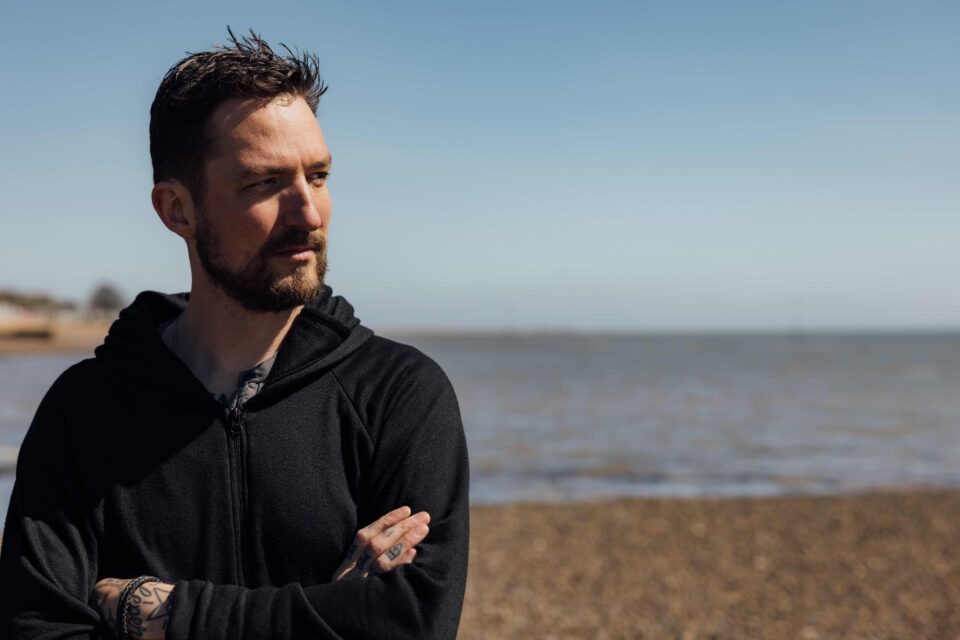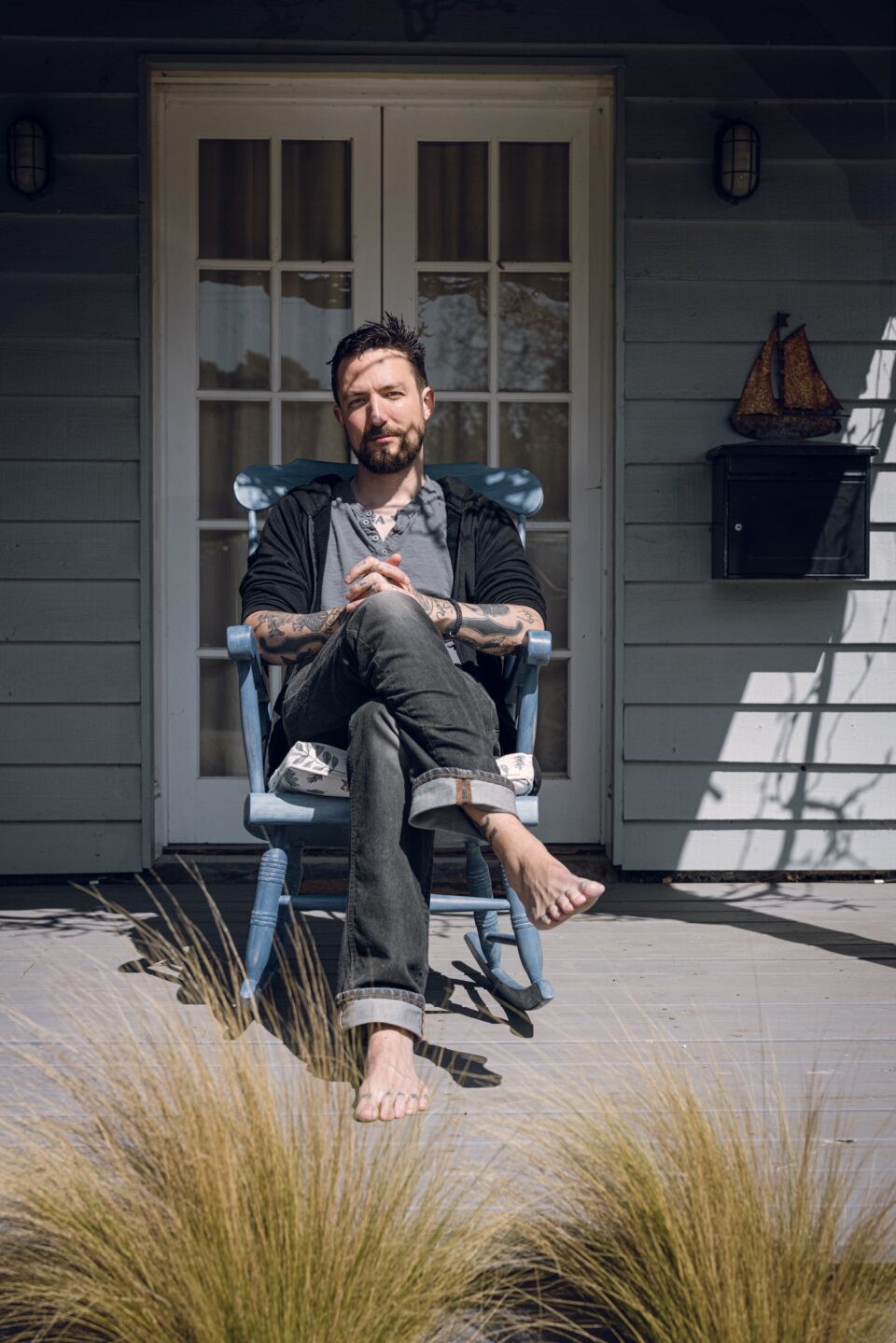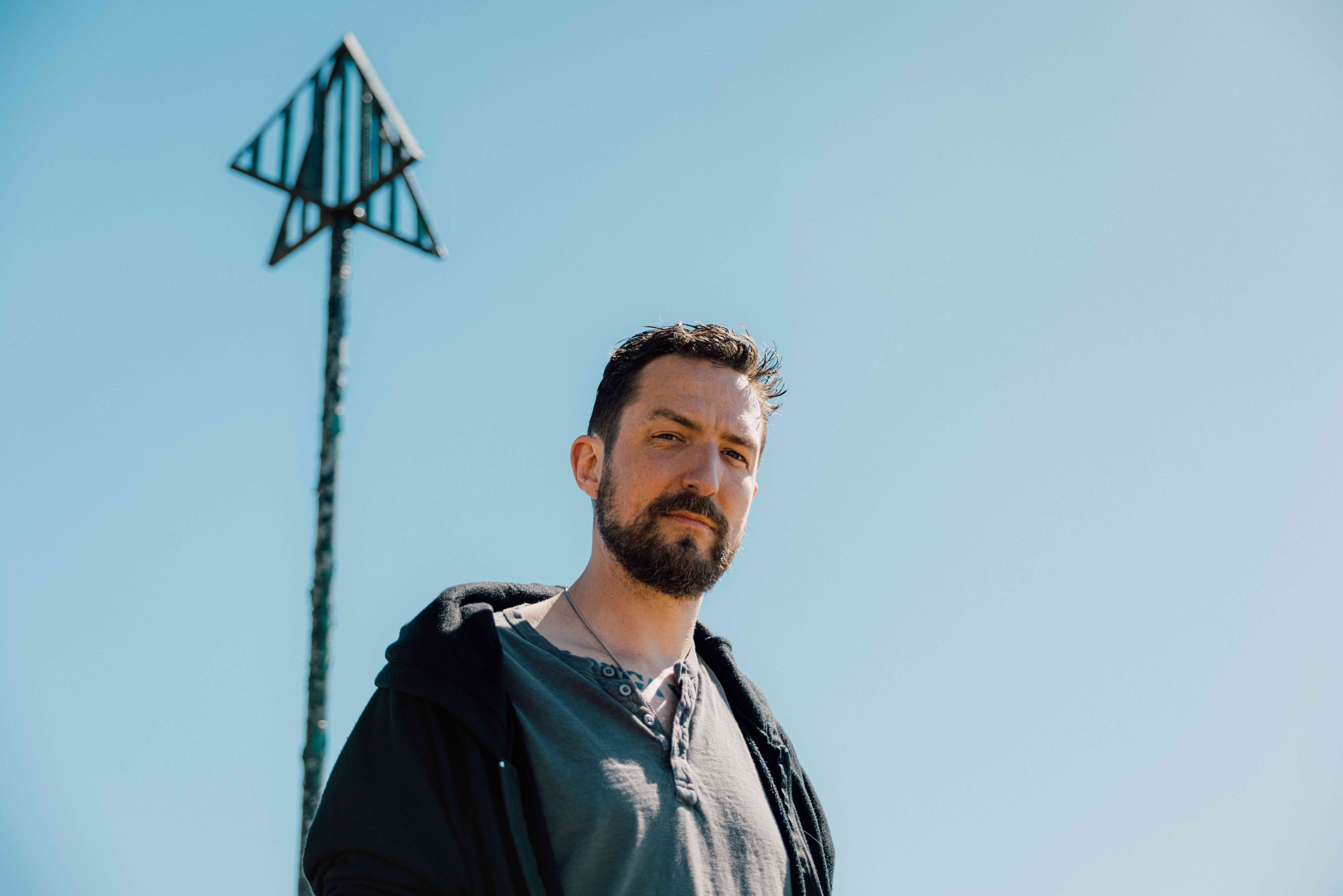Frank Turner is many things: A punk rocker, a singer-songwriter, a guy who’s as comfortable collaborating with NOFX as he is with Jason Isbell. For Turner’s ninth full-length, FTHC, he abandons the acoustic guitar for palm-muted riffs as he revisits his past traumas in a way that only Turner can. Correspondingly, when he sings “I miss the independence of being high as fuck and friendless” on the melody-rich rocker “Untainted Love,” you can almost hear his adult self looking back on the nihilism of youth—and that duality and sense of perspective is what lies at the core of this collection of songs.
We caught up with Turner to discuss how he feels he fits into the punk paradigm, what it was like opening for a bunch of Offspring fans armed solely with an acoustic guitar, and why he refers to the experience as “character building.” We also discuss the way in which trauma can be tied up in privilege and the personal nature of FTHC, particularly the song “My Bad,” which addresses a topic that Turner never previously felt comfortable talking about. Along the way he references everyone from Pedro the Lion to Agnostic Front and solidifies his place as a songwriter who’s less concerned with labels than he is conveying a shared connection between himself and his listeners.
You’ve said that FTHC gets back to your punk roots. Was that a conscious decision, or did it just kind of happen?
A little bit of both. I try not to decide what I’m going to write about ahead of time and sort of let things arrive. But of course there’s some sculpting, and one can point to moments and influences. I think for a long time I’ve written music that’s arguably “punk with an adjective,” you know what I mean? And I’m tired of adjectives. The whole “going to my roots” is a cliche—and arguably this is not going back to my roots as a solo artist, because my first solo record doesn’t sound like this—but it’s going back to my musical instincts, the music I grew up with.
“I think for a long time I’ve written music that’s arguably ‘punk with an adjective,’ you know what I mean? And I’m tired of adjectives.”
A lot of the time, as a writer, I find myself edging toward something that feels obvious and trying to find a way of making it not obvious—and this time around I just let it flow. Interestingly, it turns out that I’m not sure that what I consider “obvious” is necessarily particularly mundane. My mental crevices that are full of the details of Pedro the Lion records or Youth of Today and Gorilla Biscuits or whatever, they’re still there and I just let them have some time. There was some specific stuff as well: In the summer of 2019 I did a bunch of festivals—in particular we did Punk Rock Holiday, which is in Slovenia, and it was Pennywise and Descendents and that kind of thing, and then us. I was quite honored to be there given that I just released an electro-pop record and then a history-folk podcast album.
Indeed, there was definitely an older guy with a mohawk being slightly askance with me being there, and we went on and we held our ground, which was pretty cool. But I remember walking around in a sort of daze feeling like I was home musically and that I maybe hadn’t been home for a little while, and that it would be a nice place to spend a bit of time.

One of the first times I saw you was in 2009 at Roseland in New York and you were opening for The Offspring and Sum 41, just you with an acoustic guitar. With thousands of people in the audience to see…
A punk show! [Laughs.]
Yeah, but that was one of the punkest things I think I’ve seen. To me your career is so interesting—you’re obviously connected to punk, but have taken it so many other places.
It’s funny you mention the Offspring tour. That tour was—not because of the Offspring, who were absolutely delightful—pretty brutal for me, and a lot of people are like, “Wow, you’re brave” in a way that’s like, “Is that a compliment or not?” [Laughs]. I remember Roseland was a fun show, but a lot of the other shows were in the “sheds.” The most expensive seats are in the front, therefore there’s no one in front of you if you’re the support act—and the people you’re actually going to win [over] are about a half mile away. There was a lot of sunburnt, several-Coors-Lights-deep, shirtless Offspring fans…and I’m trying to say this in a nice way, but there were a lot of shows where I came off stage thinking that was kind of a waste of my time. Did you ever read Calvin and Hobbes as a kid?
“One of the consolations of aging is that you’re more secure in yourself as an individual, I find, and standing on firmer ground enables you to fish in deeper waters.”
Yes.
The way that Calvin's dad used to refer to experience as “character building.” I felt like it was a character building tour, but it's funny because in the interim I could count on many different hands the number of conversations I’ve had of people who say, “Actually, the first time I saw you was on that tour” and I’m like, “Jesus Christ.” At the Florida shows there were, like, 10,000 people there, and it felt like no one fucking cared at all—and the next time we went to Florida, my shows were packed. Smaller venues, obviously, but it turned out to be worthwhile.
There’s a part of me that sort of ideologically feels like I’d play a show with pretty much anybody. People are people and have the taste they have, and to go, “Well, I’d never play for country fans,” it just makes me think, “Well, maybe you’re just not good enough” [laughs]. Ultimately, I’d like to say I’d open for Slayer. Admittedly it would be a challenge; I’ve been in the Slayer audience and booed support acts in my time, but I like the idea that I could and maybe would play with anyone.
There are a lot of really personal moments on FTHC. Would you consider this to be your most personal album?
First of all, the palette has been cleansed to a degree. Secondly, I’m older than the last time I did this, so there are different things to say. But also one of the consolations of aging is that you’re more secure in yourself as an individual, I find, and standing on firmer ground enables you to fish in deeper waters. So there are three songs on this record that are very much about my childhood—and I’ve gone out of my way not to discuss my childhood in both songs and in interviews. I just didn’t want to talk about it because I wasn’t settled with it, and it was still pretty traumatic. I’m not saying that I’m completely settled about it, but it’s safer for me to kind of broach those subjects at this point in my life and walk away from it and continue to be sane or whatever. But there’s kind of a return to earlier technique.
I had this thing in my early records I used to call “the wince.” And “the wince” is when you write a lyric and then you go, “Ah!,” because it’s like, “Jesus Christ, don’t say that.” If you do that, you have to keep it in because what you’ve just done is provoke a reaction in yourself before it even got recorded. Just in terms of my taste in music, I always adored Arab Strap, Counting Crows, and Pedro the Lion. I like it when somebody says something and you kind of glance at your speaker and go, “Fucking hell, did he just say what I thought he said?”

Is mental health something you feel is less stigmatized than it has been in the past?
I think that’s definitely true, but more pointedly, both on the record and in this interview, if we’re going to talk about this, let’s fucking talk about it. Where I was educated has been a huge albatross for me in my life, and it was not a thing that I chose. I was educated privately on a scholarship at Eton College, and I didn’t mention that when I started out because I don’t want to be defined by it, and because I hated it, and because I politically disagree with it, and because I think it’s fucking lame for people in their thirties and forties to spend their time talking about school, for the love of Christ.
“The first hardcore show I went to was Agnostic Front, Morning Again, Maximum Penalty in 1997. I walked in and felt like I found my people and nobody cared what my parents did for a living, and there’s a part of me that’s eternally loyal to that conception of punk that’s about self-creation.”
But what I’ve realized over the years is that me choosing not to talk about it doesn’t stop every other fucker from talking about it, and more often than not using it as a stick to beat me with. I’m not going to contest the political issues with it and the issues of privilege—as I mentioned, that’s part of my problem with the whole fucking thing anyway. But I realized over time that people were discussing that part of my life with the unspoken but very prominent assumption that I had a great time. I had a fucking horrible time. I asked if I could leave a week after I arrived and my dad told me he’d kick me out of the house, and then a few years later I did [leave], several times. Self-harm was a huge part of my lessons and the rest of it. I had a really, really horrendous time there, and I’m allowed to say that.
“My Bad” is very specifically about all that. There’s a sense that a lot of the people from my school are running the country right now and they’re running it into the fucking ground. I would be first in the queue to sign a petition to say that anyone who went to my school shouldn’t be allowed to run a fucking news stand.
The punk scene can be very judgemental and it can be difficult to judge people for their own circumstance when they didn’t ask for it.
Punk is many different things, and I’m sure we could waste acres of our lives discussing what it is and isn’t, but ultimately what it meant for me as a kid was acceptance and safety. I was in this 24/7 boarding environment and then I figured out how to jump the train and go to London and go to hardcore shows. The first hardcore show I went to was Agnostic Front, Morning Again, Maximum Penalty in 1997. I walked in and felt like I found my people and nobody cared what my parents did for a living, and there’s a part of me that’s eternally loyal to that conception of punk that’s about self-creation. It’s not about where you came from, it’s about where you’re going. FL







